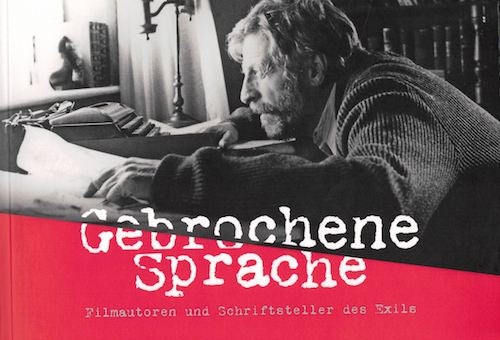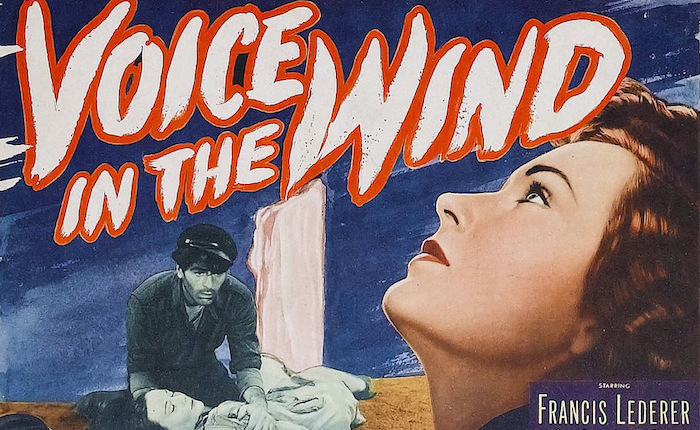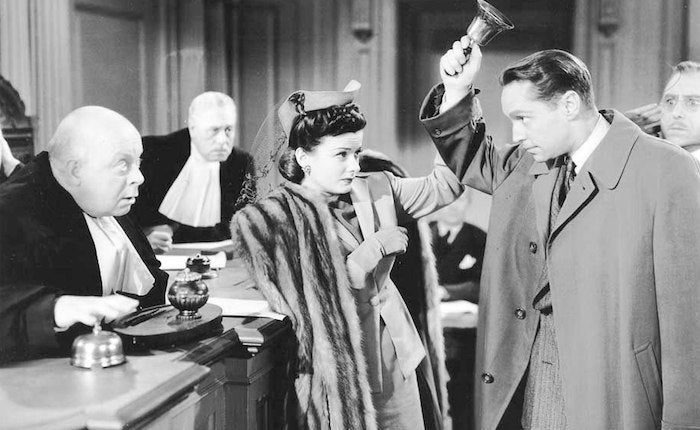
Broken Language: Film Authors and Writers in Exile
In November, CineGraph - Hamburg Center for Film Research invited film historians to the 29th International Conference of German Film Heritage. This year's topic was “Broken Language: Film Authors and Writers in Exile.” Unlike many conferences that squeeze as many presenters as possible into a program, the event featured only six panels and 13 papers over three days, leaving plenty of time for in-depth discussions, as well as several film screenings a day. While the great majority of talks focused on German-Jewish filmmakers who had fled Nazi Germany, the recent refugee crisis in Europe gave the conference an unexpected relevance. Indeed, a pre-conference event featured exiled filmmakers from Iran and Syria who reported on their attempts to reestablish their careers in Hamburg, a city with a rich and long tradition of media production.
UK-based film historian Geoff Brown began the conference proceedings proper with a paper on Friedrich Hollaender, the Hollywood film composer best known for his Marlene Dietrich The Blue Angel (1930) songs, who published a novel about the experience of exile, Those Torn From the Earth (1939), which expresses some of the bitterness of loss of language and homeland. Indeed, the need to learn a foreign language and then produce literature (or film scripts) in that newly acquired language was the theme of the conference. Next, Réka Gulyás (Berlin) discussed a whole boatload of Hungarian writers in Hollywood who contributed to the script for Tales of Manhattan (1942), an early Hollywood omnibus film about the falling fortunes of a formal tailcoat, with Ferenc Molnár, Ladislas Fodor, László Vadnay and László Gorog. Interestingly, Hungarian writers proved to be among the most successful in the classical Hollywood period, often working in comedy, the genre most difficult to translate.
The second panel was dedicated to former Berlin film critics Siegfried Kracauer and Lotte Eisner. Michael Girke (Herford) documented the extreme poverty suffered by Kracauer while in exile in Paris in the 1930s, during which time he attempted to sell film scripts to survive. London-based Julia Eisner reported on her dissertation-in-progress at Kings College on her famous aunt, focusing on Lotte Eisner’s career as a film collector and curator at the Cinémathèque Française, accomplishments that were obliterated by the French hagiography surrounding Henri Langlois. Thanks to their respective works on German cinema before Hitler, of course, both Eisner and Kracauer entered the canon as film historians.

Voice in the Wind (1944)
The third panel’s topic, exile in 1930s Paris, began with Thomas Tode’s (Hamburg) presentation on Slatan Dudow, the Bulgarian director of Kuhle Wampe (1932), who lived with little financial support in France until he was deported to Switzerland in 1940. There he was able to complete a left-wing, experimental short begun in Berlin, Seifenblasen/Soap Bubbles (1934). Next, Heike Klapdor (Berlin) introduced the largely unknown film work of Irène Némirovsky, who, like many female authors, has been unjustly neglected, and who was murdered in Auschwitz in 1942, after being handed over to the Germans by French authorities. Then, Christoph Fuchs (Hamburg) described the relatively successful French film career of Max Glass, an exiled Austrian producer-writer, who intentionally kept his distance from the significant German émigré community in France, probably to avoid the stigma attached to such a refugee status.
The fourth panel featured British writer Deborah Vietor-Engländer’s discussion of Alfred Kerr, the most famous and feared theater critic of the Weimar Republic, whose exile took him from Paris to London, where he tried in vain to write and sell film scripts. Hungarian film producer Alexander Korda did purchase one script, but probably a charity act more than anything else. Next, Vienna-based film curator, Michael Omasta, read his paper on Austrian writer Friedrich Torberg, who caustically described his Hollywood career as a total failure, although his atmospheric film noir melodrama about the plight of German-Jewish refugees from Hitler, Voice in the Wind (1944) is now considered a minor masterpiece.
Omasta’s longtime colleague, Brigitte Mayr, introduced the previously completely invisible film career of Anna Gmeyner, an exiled Viennese author who worked without credit for G.W. Pabst in Paris and the Boulting Brothers in London on films like Pastor Hall (1940); again a fate typical of exiled women writers. My research on Austrian writer Gina Kaus and her scripts for the anti-Nazi film, The Wife Takes a Flyer (1942), and the anti-Communist film, The Red Danube (1949) concluded the fifth panel.

The Wife Takes a Flyer (1942)
Christian Rogowski (Amherst) discussed the miraculous survival of German-Jewish film director Ludwig Berger in Holland during the German occupation; Berger previously had a substantial career in Hollywood in the late-1920s, and was able to direct a couple of films in Holland after 1933. But like many directors who worked in multiple countries, Berger has fallen through the cracks of what are still mostly national film histories. The final paper of the conference was presented by Francesco Pitassio, who discussed the film theoretical writings of Willy Haas, a German film critic and editor who fled to Prague after 1933 and then to India in 1939.
The 28 films screened in connection with the conference included a mixture of old and new, and are described in the accompanying catalog, Gebrochene Sprache. Honorable mention should, however, go to Peliculas escondidas: Una viaje entre el exilio y la memoria, directed by Claudia Sandberg and Alejandro Areal Vélez, which had its world premiere only days before at the Mar del Plata International Film Festival in Argentina. It told the largely unknown story of Chilean filmmakers who had fled after the CIA orchestrated a coup against Salvador Allende and gone to the German Democratic Republic, where they produced important work in exile. The series thus came full circle, since it had begun with a screening of Christian Ziewer’s I See This Land from Afar (1978), a film about Chilean exiles in West Berlin.
< Back to Archival Spaces blog






 Mobile Navigation
Mobile Navigation

